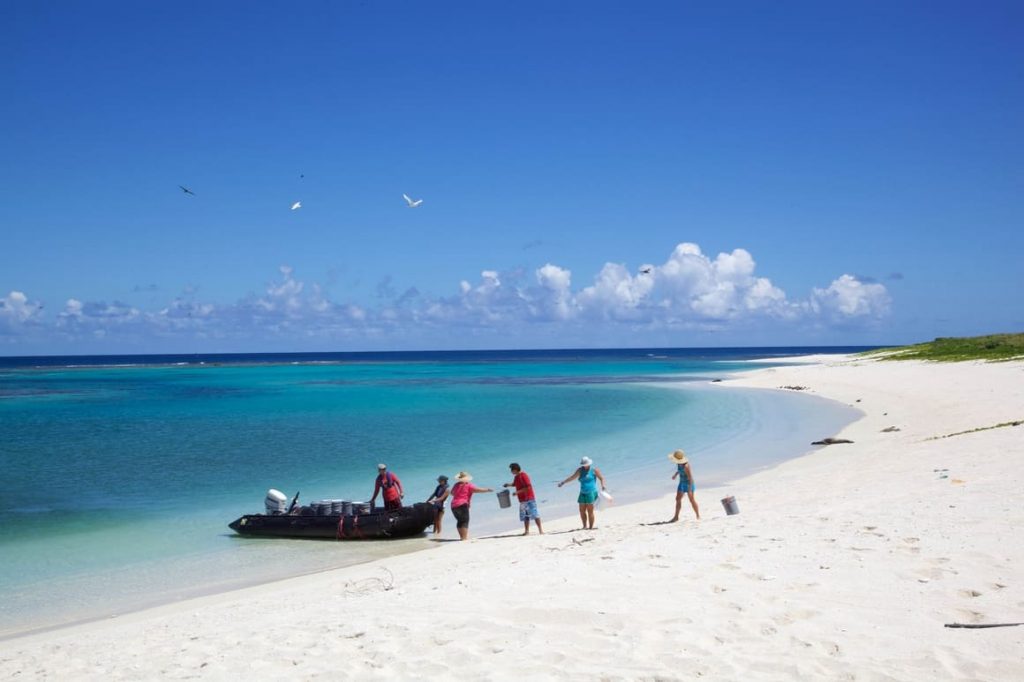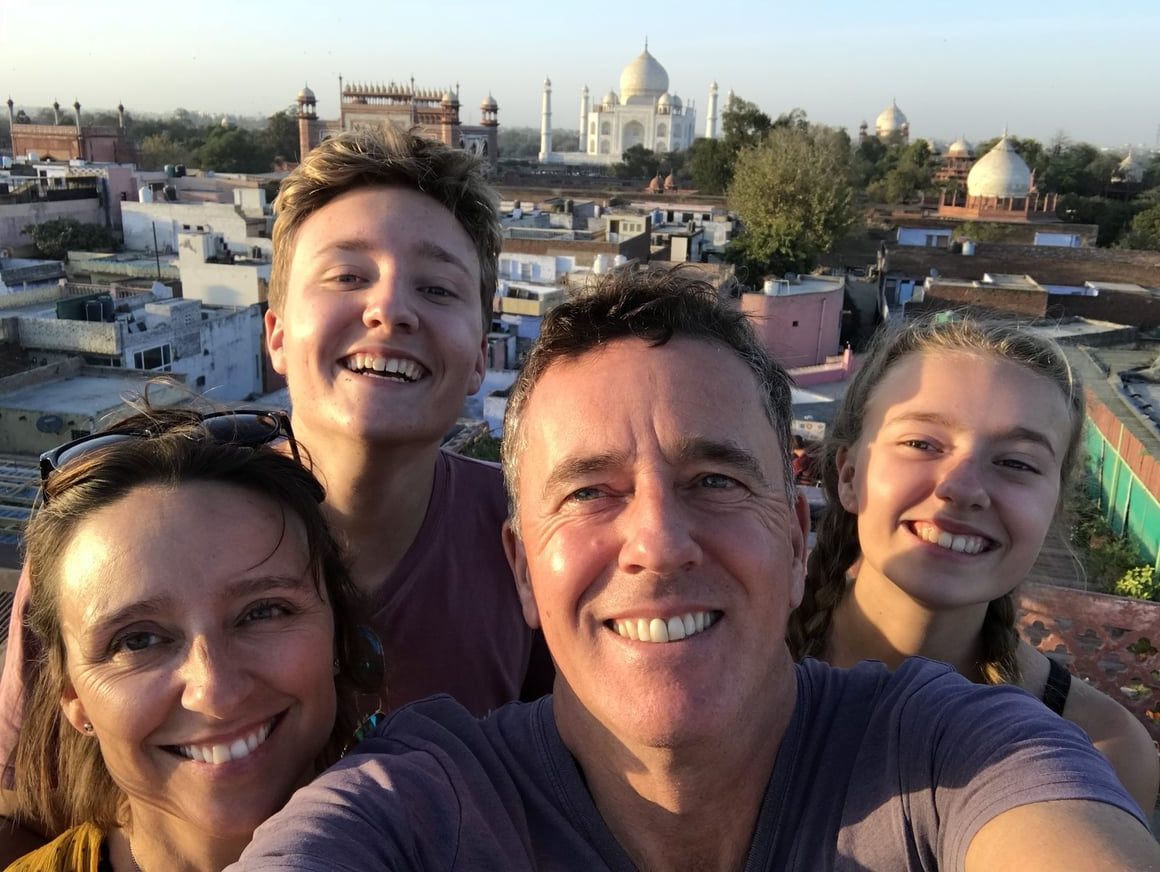Life can be stressful at the best of times. When the everyday routine repeats into an endless loop of dullness and deadlines, it can be tricky for your family to grow strong together. You might think that you just need a holiday to recharge your batteries, but it isn’t always enough.
A week on a sunny beach sounds nice, but coming back home, you might feel like there is so much more to life, and so much that you’re missing. If this sounds familiar, you might be ready to consider long-term travelling. Indeed, if quitting your job and leaving your home behind for an extended period – a year? Two years? Longer? You choose! – sounds appealing, then this article is for you but you need to know how to travel like a local.
Here, we try to give you some ideas and tips on how to travel like a local and how to keep your budget on track when your family embraces the nomadic lifestyle.

The nomad life without breaking the bank
Travel Like a Local:
Long stays = no hotel
When you travel around the world, you need to forget about the luxury of hotel rooms. While it’s a nice addition to a short holiday, you can’t make this your day-to-day lifestyle. With your budget in mind, it’s essential to look for cost-friendly solutions that are safe and practical for all. In other words, for extended stays in the same area, rentals, such as a studio for rent, can be the best solution to reduce your accommodation costs. Additionally, in a rental, you also have the possibility to cook your own food, which helps to manage your budget too! Eventually, creating your home away from home is the way to save money: A place to sleep, cook and even work if you choose freelancing activities – more about this later. However, a word of warning; some countries have additional taxes that are not included in the rental costs, but that still need to be paid. Make sure to ask your landlord about these.
Eat like a local
When in Rome, do like the Romans. The saying goes for eating too, as you will find that local food is cheaper and more easily accessible. Naturally, in countries with different hygiene standards and facilities, you need to be careful about food safety. In poor areas of Asia, India and Africa, for instance, it’s best to avoid drinking tap water. You shouldn’t use it to wash or prepare fresh ingredients either. Seafood and meat should be fresh when purchased, as they might cause intestinal problems. The colonial explorers used to say “cook it, wash it, peel it or forget it”, which is an excellent reminder of the safety rules when eating and cooking abroad.
Bring your own entertainment
Everyone needs to have their own bubble of comfort. Yours, and the one of your family, is probably tech. Gadgets are often a fantastic source of entertainment for teenagers, but as a parent spending months in a country with not one Starbucks in town, you might want to indulge in some gadgetry too. This will avoid excessive last-minute purchases, from a portable speaker for your music to a kindle. Before you launch into your travel adventure, pack your entertainment bag with all the essentials. It will save your family a lot of money and conflicts!
Forget about urban habits
If you are used to urban life, you probably can’t imagine getting anywhere without taking the bus, the tram or even the subway. If none of these is available, then you can book an Uber to your destination. But when you’re in a new town every week or month, you might want to find the best walking tour to explore the area at low cost. So, if you’re the kind of person who loves to sit on the open-roof tourist tour bus, it’s time to tie your shoes and give them a good workout in town instead.
How are your budgeting skills?
Travelling doesn’t come for free. But as much as you might be trying to keep track of your expenses, it’s not always easy to know exactly how much you’re spending when you’re dealing with a foreign currency. World travellers prefer to rely on handy tools, such as a budgeting app that can work cross currencies. Trail Wallet is a favourite, used by over 150,000 people worldwide, and it lets you assign expenditure to your chosen budget categories in the currency of your choice. It’s only available for iOS though, so for Android lovers, TraveePocket is the alternative to use.
Do you need to work?
It doesn’t matter how much you’ve been putting aside for your adventures. There might come a moment when money gets tight. If this is the case, you might want to look for a freelance job that would let you pursue your travels freely. If you have a way with words, you might offer your knowledge as a travel writer. You can find online opportunities to have your text published in a magazine or a renowned newspaper. Blogging, about travel or anything else, gives you the chance to create a regular source of income through advertising or sponsoring if you can attract enough visitors. And if you’re comfortable in front of a camera, you can transform your blog into a vlog, a video blog on YouTube.
Learn the lingo
English is the proxy language by definition. But it’s not an excuse not to learn to speak the local language. When you stay for a long period of time in the same area, you will find it easier to integrate into the community if you can understand the locals. You may not become fluent. However, it can be helpful to find your way, negotiate rental fees, find a job, buy your groceries, and even ask for a doctor if someone in your family falls ill.
You might be a regular flyer who have visited many areas in the world, but long-term travelling is a different kettle of fish. Keeping your budget on track is essential when you’re without a regular source of revenues for a long time. There are many tips you can use, from monitoring your expenses with a cross-currency app to using local facilities. But in the end, the most important lesson you need to remember is that your life abroad won’t be like at home. Seeking the routine and facilities you are used to might put your budget at risk.

